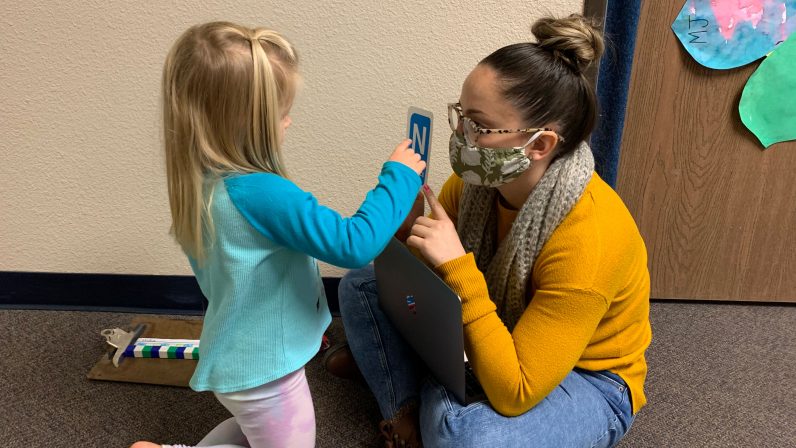We’ve hit another point in the year when we take time to assess each child, then create documentation and a space to talk about it with parents. It’s typically a challenging time for the teachers, and this year holds another layer of complication, due to COVID-19. Assessments look different, depending on the age of the child. For older students, more traditional paper and pencil evaluations are utilized, along with individual reading assessments. Younger students are frequently assessed one-on-one, during class time, or on the occasion of a non-sleeper, during nap time. Those sessions, sometimes conducted in the hallway, are a delightful process to witness. I get the feeling that the child usually thinks it’s just a fun playtime with their teacher.
Many current issues make this process harder. For example, some students have been enrolled virtually since August and haven’t even set foot in the building. Although teachers do their best to gather pertinent information from these students, it’s not the same as face-to-face. For older students working at home, certain materials are required. Although provided by teachers, there are lots of moving parts, and sometimes things will go missing. Additionally, some students and staff have had to quarantine for COVID-19. This has interfered with the assessment process because one or both of the parties involved were missing.
Being able to hold parent/teacher conferences virtually, although not as personalized, has actually worked out well. Parents won’t have the opportunity to sit in their child’s school environment, see their art work displayed on the walls, or set foot in the outdoor area where their class garden is growing. But there is something to be said about parents being able to attend the conference from their own home instead of having to drive to the school. The Zoom format has worked so well that we plan to keep some events virtual, even after we’re fully back in person for all students.
As teachers complete the assessment phase for this time of year, we’re also making our assessments regarding how we’re doing as a school. Often, especially when out front supporting the morning health check-ins, or at afternoon pickup, I’m asked how we’re doing. Depending on the day, sometimes I’ll say, “Getting by.” Other times it might be, “Pretty well, all things considered.” Even though I might not say it, what’s really in my heart is this: “Some days are harder than others. On the whole, the Seed is alive and well. It’s hard work, especially for the teachers, and over all, we’re thriving. We’ll get through this and come out of it stronger than ever. We’re the Seed.”

